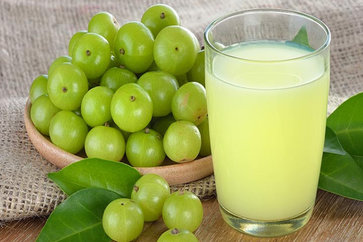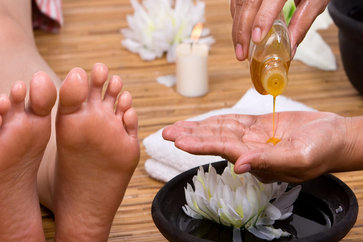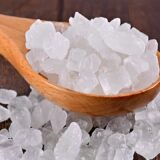Chyawanprash: Benefits, Uses, Ingredients, Dosage, and More
Chyawanprash is a pillar of Ayurvedic medicine, revered for its holistic approach to health and well-being. This time-honored formula, comprising over 50 herbs, minerals, and clarified butter (ghee), has been cherished for centuries for its rejuvenating and restorative properties. At its heart lies Amla (Indian Gooseberry), a powerhouse of Vitamin C and antioxidants.
Beyond its reputation as an immunity stalwart, Chyawanprash offers a spectrum of benefits. Its antioxidant prowess shields the body from oxidative stress, a primary contributor to aging. For the digestive system, it acts as a gentle yet effective tonic, promoting optimal function and nutrient absorption.
Moreover, Chyawanprash is valued for its energizing properties, providing sustained vitality without the jitters often associated with stimulants. Its nourishing qualities extend to the skin, imparting a healthy glow and resilience. And for the mind, it offers cognitive support, aiding in memory retention and mental clarity.
What is Chyawanprash?
The name “Chyawanprash” is derived from the legendary sage Chyavana, who is believed to have regained his youth and vitality after consuming this miraculous concoction.
This ancient Ayurvedic formula has been passed down through generations, with its recipe and preparation methods carefully preserved.
While the exact origin of Chyawanprash is shrouded in the mists of time, its mention can be found in ancient Ayurvedic texts, highlighting its significance in traditional Indian medicine.
Over the centuries, Chyawanprash has gained popularity not only in India but also in other parts of the world, becoming a widely recognized and cherished Ayurvedic remedy.
Benefits of Chyawanprash
Chyawanprash is a holistic Ayurvedic remedy that offers a wide range of benefits for overall health. Some of the key advantages include:
1. Immunity Booster
- Rich in Vitamin C: This essential nutrient is a powerful antioxidant that strengthens the immune system.
- Combats Infections: Helps protect against common colds, flu, and other infections.
- Reduces Illness Severity: Mitigates the intensity of illnesses when consumed regularly.
2. Digestive Health
- Improves Digestion: Aids in better digestion and absorption of nutrients.
- Reduces Bloating and Gas: Alleviates digestive discomfort.
- Supports Gut Health: Promotes a healthy gut microbiome.
3. Anti-Aging Properties
- Powerful Antioxidants: Protect cells from damage caused by free radicals.
- Slows Down Aging: Helps maintain youthful vitality and appearance.
- Enhances Skin Health: Promotes radiant and glowing skin.
4. Energy and Vitality
- Boosts Energy Levels: Provides sustained energy throughout the day.
- Reduces Fatigue: Combats tiredness and lethargy.
- Enhances Stamina: Improves physical endurance.
5. Heart Health
- Lowers Cholesterol: Helps maintain healthy cholesterol levels.
- Improves Blood Circulation: Supports cardiovascular health.
- Reduces Risk of Heart Disease: Protects the heart from oxidative stress.
6. Brain Health
- Enhances Memory: Improves cognitive function and memory retention.
- Boosts Concentration: Enhances focus and mental clarity.
- Reduces Stress: Promotes relaxation and stress management.
Remember: While Chyawanprash offers numerous benefits, it’s essential to consume it in moderation and consult with an Ayurvedic practitioner for personalized guidance.
Chyawanprash for Vata Dosha
Vata dosha is associated with air and ether elements. People with predominant Vata tend to have qualities like dryness, lightness, coldness, roughness, and mobility. When Vata is imbalanced, it can lead to issues like constipation, gas, anxiety, insomnia, and joint pain.
Chyawanprash Benefits Vata Dosha
Chyawanprash, a holistic Ayurvedic remedy, is particularly beneficial for balancing Vata dosha. Here’s how:
- Pacifies Vata: Chyawanprash’s oily and sweet properties help to calm the Vata dosha.
- Moisturizes the body: Vata individuals often experience dryness. Chyawanprash helps to counteract this by providing moisture.
- Relieves constipation: It improves digestion and helps alleviate constipation, a common Vata imbalance.
- Nourishes the body: Packed with nutrients, Chyawanprash provides essential nourishment.
- Reduces anxiety and stress: It has a calming effect on the mind, helping to manage Vata-related anxiety and stress.
How to take Chyawanprash for Vata?
- Dosage: One to two teaspoons daily.
- Timing: Best taken before bed.
- Combination: Mix with warm milk or honey for added benefit.
Important: While Chyawanprash is generally beneficial, it’s advisable to consult an Ayurvedic practitioner for personalized guidance.
Chyawanprash for Pitta Dosha
Pitta dosha is associated with fire and water elements. People with predominant Pitta tend to have qualities like hot, sharp, oily, liquid, and intense. When Pitta is imbalanced, it can lead to issues like heartburn, acid reflux, inflammation, and irritability.
Chyawanprash Benefits Pitta Dosha
While Chyawanprash is generally considered balancing for all doshas, it’s important to consider individual constitutions. For Pitta individuals, it can be beneficial in moderation.
- Cooling effect: Some of the ingredients in Chyawanprash, like amla, have a cooling effect which can help to balance Pitta’s fiery nature.
- Digestive support: Chyawanprash can support digestion, which is crucial for Pitta balance. However, excessive Pitta can already lead to strong digestion, so moderation is key.
- Immunity boost: Pitta individuals can benefit from a strong immune system, and Chyawanprash can support this.
How to take Chyawanprash for Pitta individuals?
- Moderation: Due to its potential heating properties, Chyawanprash should be consumed in moderation.
- Individual constitution: It’s essential to consider your specific Pitta imbalance and consult with an Ayurvedic practitioner for personalized guidance.
- Combination: Combining Chyawanprash with cooling herbs like coriander or mint can help to balance its potential heating effect.
Remember: While Chyawanprash can be beneficial for Pitta individuals in moderation, it’s essential to listen to your body and adjust consumption accordingly.
Characteristics of Kapha Dosha
Kapha dosha is associated with earth and water elements. People with predominant Kapha tend to have qualities like heavy, oily, cold, slow, and stable. When Kapha is imbalanced, it can lead to issues like weight gain, congestion, lethargy, and sluggish digestion.
How Chyawanprash Benefits Kapha Dosha
While Chyawanprash is generally considered balancing for all doshas, it’s important to consider individual constitutions. For Kapha individuals, it should be used with caution due to its potential to increase Kapha.
- Digestive support: Chyawanprash can help stimulate digestion, which can be sluggish in Kapha individuals. However, excessive Kapha can already lead to slow digestion, so moderation is key.
- Immunity boost: Kapha individuals can benefit from a strong immune system, and Chyawanprash can support this.
How to take Chyawanprash for Kapha individuals?
- Moderation: Due to its potential to increase Kapha, Chyawanprash should be consumed in moderation.
- Individual constitution: It’s essential to consider your specific Kapha imbalance and consult with an Ayurvedic practitioner for personalized guidance.
- Combination: Combining Chyawanprash with warming spices like ginger or black pepper can help to balance its potential Kapha-increasing effect.
Remember: While Chyawanprash can be beneficial for Kapha individuals in moderation, it’s essential to listen to your body and adjust consumption accordingly.
Ingredients in Chyawanprash
Chyawanprash is a complex formulation containing a blend of herbs, spices, and natural ingredients. While the exact composition can vary, some key ingredients include:
Primary Ingredients (per 10 grams):
- Amalaki (Amla or Indian Gooseberry) – Phyllanthus Emblica (Emblica Officinalis): 7060 mg
- Cow’s ghee (Clarified Butter): 206 mg
- Sesame Oil (Til tail): 206 mg
- Sugar (Sharkara): 5880 mg
- Honey (Shahad): 706 mg
Decoction Ingredients:
- Vasaka – Adhatoda Vasica
- Bilwa (Bael) – Aegle marmelos
- Haritaki (Chebulic Myrobalan) – Terminalia chebula
- Guduchi (Giloy or Heartleaf moonseed) – Tinospora Cordifolia
- Agaru (Agarwood) – Aquilaria agallocha
- Punarnava (Spreading hogweed or Common Hogweed) – Boerhaavia diffusa
- Karchoor – Curcuma Zedoaria
- Mustak (Nagarmotha or nut grass) – Cyperus rotundus
- Shalaparni – Desmodium gangeticum
- Elachi (Green cardamom) – Elettaria cardamomum
- Kshir Kakoli – Fritillaria Roylei
- Gambhari (Gmelina) – Gmelina arborea
- Riddhi – Habenaria intermedia
- Shati (Spiked Ginger Lily) – Hedychium spicatum
- Pushkarmool (Elicampane) – Inula Racemosa
- Lal Chandan (Red Sandalwood) – Pterocarpus santalinus
- Vidarikand – Pueraria Tuberosa
- Chandan (White Sandalwood) – Santalum album
- Vidari (Alligator Yam, Milky Yam or Giant Potato) – Ipomoea Digitata
- Jeevanti (Jiwanti) – Leptadenia Reticulata
- Kakoli (White Himalayan lily) – Lilium Polyphyllum
- Meda – Litsea Glutinosa
- Kakanasika (Maritima annua or Martynia diandra)
- Jeevaka – Microstylis muscifera
- Mudgaparni – Phaseolus Trilobus
- Bhumi Amla – Phyllanthus Urinaria
- Pippali (Long pepper) – Piper longum
- Karkatakashringi (Crab’s claw) – Pistacia integerrima
- Kamal Gatta (Lotus Beads) – Nelumbium speciosum
- Utpala (Blue Star Water Lily) – Nymphaea Stellata
- Shyonaka (Broken bones plant) – Oroxylum indicum
- Maha medha (Tendril Leaf Solomon’s Seal) – Polygonatum cirrhifolium
- Agnimantha (Premna) – Premna corymbosa
- Bala (Country Mallow) – Sida cordifolia
- Brihati – Solanum indicum
- Gokshura (small caltrops) – Tribulus terrestris
- Prishnaparni (Indian Uraria) – Uraria picta
- Mudgaparni (Wild Gram) – Vigna trilobata
- Draksha (Dry Grapes) – Vitis vinifera
- Kantakari (Thorny Nightshade) – Solanum Surattense
- Patala (Rose Flower Fragrant) – Stereospermum suaveolens
- Mashaparni (Vogel Tephrosis or Blue wiss) – Teramnus labialis
- Vanshlochan (Bamboo manna)
- Dalchini (Cinnamon) – Cinnamomum zeylanicum
- Tejpata (Indian bay leaf) – Cinnamomum tamala
- Nagkesar – Mesua Ferrea
Chyawanprash, a traditional Ayurvedic formulation, is renowned for its comprehensive blend of herbs and ingredients. This potent combination is designed to bolster immunity, rejuvenate the body, and enhance overall well-being.
Specific Ingredients Beneficial for Each Dosha
While Chyawanprash is generally considered balancing for all doshas, certain ingredients can be particularly beneficial for specific dosha types:
- Vata Dosha: Ingredients with grounding and moisturizing properties, such as sesame oil, ghee, and ashwagandha, can be helpful.
- Pitta Dosha: Cooling and soothing ingredients like amla, coriander, and mint can balance Pitta’s fiery nature.
- Kapha Dosha: Warming spices like ginger, black pepper, and cardamom can help stimulate digestion and reduce Kapha accumulation.
Note: The specific ingredients in Chyawanprash can vary between different brands. It’s essential to check the product label for a complete list of ingredients.
How to Take Chyawanprash
Recommended Dosage
The recommended dosage of Chyawanprash can vary based on individual factors such as age, health condition, and dosha type. However, a general guideline is:
- Adults: 1-2 teaspoons, once or twice daily.
- Children: Consult with an Ayurvedic practitioner for appropriate dosage.
It’s important to start with a smaller amount and gradually increase it as needed.
Best Times to Consume Chyawanprash
The optimal time to consume Chyawanprash depends on your specific needs and goals. Here are some general guidelines:
- Morning: Taking Chyawanprash on an empty stomach in the morning can provide a boost of energy and immunity.
- Evening: Consuming it before bed can help promote restful sleep and overall rejuvenation.
- With meals: Some people find it beneficial to take Chyawanprash with meals to improve digestion.
Note: The best time to consume Chyawanprash may vary based on your dosha type. For example, individuals with Pitta dosha might prefer to avoid it during the hottest part of the day.
Remember: While Chyawanprash is generally safe, it’s always advisable to consult with an Ayurvedic practitioner for personalized guidance, especially if you have underlying health conditions or are taking medications.
Potential Side Effects of Chyawanprash
While Chyawanprash is generally considered safe, it’s essential to be aware of potential side effects and who should avoid it.
Who Should Avoid Chyawanprash?
- Diabetics: Chyawanprash typically contains sugar, so it should be consumed with caution by individuals with diabetes.
- Pregnant and Breastfeeding Women: While traditionally used, it’s advisable to consult a healthcare provider before consuming Chyawanprash during pregnancy or breastfeeding.
- Individuals with Allergies: If you have allergies to any of the ingredients in Chyawanprash, avoid it.
People with Specific Medical Conditions: Individuals with certain medical conditions should consult their doctor before using Chyawanprash.
Possible Side Effects and How to Mitigate Them
- Digestive Issues: Excessive consumption can lead to digestive problems like diarrhea or constipation. Start with a small amount and gradually increase the dosage.
- Allergic Reactions: In rare cases, people may experience allergic reactions to certain ingredients. Discontinue use if you notice any adverse reactions.
- Blood Sugar Levels: Due to sugar content, Chyawanprash might affect blood sugar levels. Monitor blood sugar closely if you have diabetes.
To minimize potential side effects:
- Start with a small amount and gradually increase the dosage.
- Choose a reputable brand with clear ingredient lists.
- Consult with an Ayurvedic practitioner for personalized guidance.
Remember: While Chyawanprash is generally safe, it’s essential to listen to your body and consult with a healthcare professional if you have any concerns.
How to Choose the Right Chyawanprash
Selecting the right Chyawanprash can be overwhelming given the numerous options available. Here are some tips to guide your choice:
Tips for Selecting High-Quality Chyawanprash
Check the Ingredient List: Look for Chyawanprash with a high content of Amla (Indian Gooseberry), the primary ingredient. Other beneficial herbs like Ashwagandha, Tulsi, and Ginger are also valuable additions.
- Avoid Artificial Sweeteners and Preservatives: Opt for Chyawanprash made with natural sweeteners like honey or jaggery.
- Consider Your Dosha: If you know your predominant Dosha (Vata, Pitta, or Kapha), choose a Chyawanprash that caters to your specific needs.
- Look for Certifications: Products with certifications like FSSAI (Food Safety and Standards Authority of India) or organic certifications are generally safer.
- Read Reviews: Online reviews can provide insights into the product’s quality and effectiveness.
To 10 Brands to Consider for Chyawanprash
While personal preferences and availability may vary, here are some reputable brands known for their Chyawanprash products:
- Dabur: A well-known Ayurvedic brand with a wide range of Chyawanprash options.
- Patanjali: Offers Chyawanprash with an emphasis on natural ingredients.
- Baidyanath: Another trusted Ayurvedic brand with various Chyawanprash formulations.
- Himalaya: Known for its herbal products, Himalaya offers Chyawanprash with a focus on holistic health.
- Charak Pharma: Renowned for its Ayurvedic formulations, Charak offers Chyawanprash with a focus on purity.
- Shree Baidyanath Ayurved Bhawan: A longstanding Ayurvedic brand with a wide range of Ayurvedic products including Chyawanprash.
- Kapiva: Known for its modern approach to Ayurveda, Kapiva offers Chyawanprash with a focus on convenience.
- Ayush Herbs: A brand specializing in Ayurvedic supplements, offering Chyawanprash with various formulations.
- Himalaya International: A global brand with a strong presence in Ayurvedic products, including Chyawanprash.
- Organic India: Known for organic and sustainable products, Organic India offers Chyawanprash with a focus on purity.
Remember: This list is not exhaustive, and the availability of these brands may vary depending on your location. Always prioritize quality, authenticity, and transparency when choosing a Chyawanprash product.
How to Make Chyawanprash at Home?
While commercial Chyawanprash is widely available, making it at home allows for customization based on individual needs and preferences. However, it’s a time-consuming process that requires specific ingredients and expertise.
How To Make Chyawanprash At Home
Ingredients:
- Amla (Indian Gooseberry): 750 gm
- Sarkara (Sugar): 750 gm
- Madhu (Honey): 85 gm
- Ghee (Clarified Butter): 250 gm
- Sesame (Til) Oil: 75 ml
Decoction Ingredients (powdered form):
- Cardamom (Elaichi): 25 gm
- Guduchi Satva: 12 gm
- Vanshalochan: 12 gm
- Triphala: 12 gm
- Sandalwood (Chandan): 10 gm
- Long Pepper (Gaja Pippali): 10 gm
- Ginger (Sunthi): 10 gm
- Dashamoolas: 5 gm
- Prabal Bhasma: 2.5 gm
- Mrigashruga Bhasma: 2.5 gm
- Nagkesar (Cobra’s Saffron or Indian Rose Chestnut): 2.5 gm
- Bay Leaves (Tej Patra): 5 gm
- Cloves (Laung): 5 gm
- Cinnamon (Dalchini): 5 gm
- Pepper (Maricha): 5 gm
Method:
Prepare the Powders:
- Mix all the powdered ingredients in a glass bowl and set aside.
Prepare the Amla:
- Wash the amla thoroughly and pat dry.
- Prick each amla with a fork.
- Pressure cook the amla in water until you hear 2 whistles.
- Remove the seeds and prepare a very smooth paste from the cooked amla. Keep it aside.
Cook the Amla Paste:
- In a heavy-bottomed pan, add clarified butter and sesame oil.
- Add the sugar and mix well.
- Add the amla paste to the pan and cook on a slow flame until all the moisture evaporates from the mixture.
Mix in the Powders:
- Add the pre-mixed powders to the amla mixture.
- Mix thoroughly to ensure an even distribution of the powders.
Cool and Add Honey:
- Turn off the flame and allow the mixture to cool completely.
- Once cool, add the honey and blend well to achieve a homogeneous mixture.
Store the Chyawanprash:
- Transfer the prepared chyawanprash into a glass bottle for storage.
Consume as needed. - This homemade chyawanprash is packed with the goodness of amla and various herbs, making it a powerful supplement for enhancing immunity and overall health.
Customizing the Recipe for Different Doshas
- Vata Dosha: Increase the amount of ghee and sesame oil to add moisture and balance dryness. Include warming spices like ginger and cinnamon.
- Pitta Dosha: Incorporate cooling ingredients like coriander, mint, and licorice root. Reduce the amount of sugar and spices.
- Kapha Dosha: Add stimulating spices like black pepper, ginger, and cardamom to enhance digestion. Reduce the amount of ghee and sugar.
Remember: This is a general guideline. Individual needs may vary. It’s advisable to consult an Ayurvedic practitioner for personalized recommendations.
Chyawanprash and Modern Science
Scientific Studies on Chyawanprash
While Chyawanprash has been used for centuries in Ayurvedic medicine, scientific research on its benefits is relatively recent. However, there is a growing body of evidence supporting its traditional claims.
Studies have shown that Chyawanprash:
- Possesses antioxidant properties: This helps combat oxidative stress, which is linked to various diseases.
- Boosts immunity: It contains Vitamin C and other immune-enhancing compounds.
- Has anti-inflammatory effects: This can help manage conditions like arthritis and asthma.
- Supports liver health: Some studies suggest it can protect the liver from damage.
It’s important to note that while research is promising, more studies are needed to fully understand the mechanisms of action and the optimal dosage of Chyawanprash.
Integration of Chyawanprash in Modern Health Practices
The growing body of scientific evidence is leading to a wider acceptance of Chyawanprash in modern healthcare. Some ways it’s being integrated include:
- Complementary medicine: Used alongside conventional treatments to manage chronic conditions.
- Preventive healthcare: Recommended as a daily supplement to boost immunity and overall well-being.
- Ingredient in functional foods: Chyawanprash ingredients are being incorporated into various food products.
- Research and development: Ongoing research is exploring new applications and formulations of Chyawanprash.
References:
- Chyawanprash, An Ancient Indian Ayurvedic Medicinal Food, Regulates Immune Response in Zebrafish Model of Inflammation by Moderating Inflammatory Biomarkers(1)
- Chyawanprash: A Traditional Indian Bioactive Health Supplement(2)
- Immunostimulatory activity of a novel ayurvedic propriety formulation based on extracts of herbs used in chyavanprash(3)
- Traditional medicinal formulation, chyawanprash-A review(4)
- Chyawanprash: A review of therapeutic benefits as in authoritative texts and documented clinical literature(5)

























